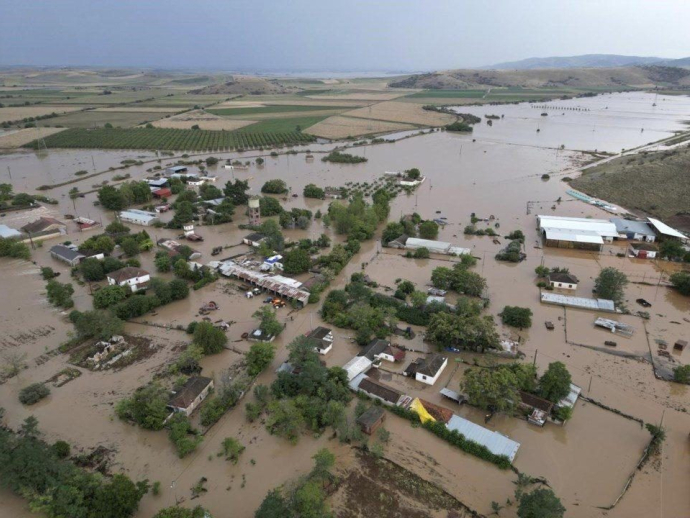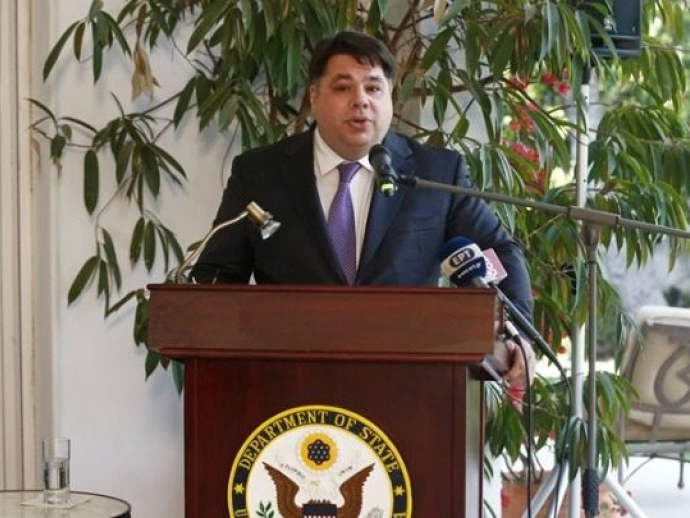Greece must bolster flood defenses and reduce water-guzzling crops, experts say
The Mediterranean country has been buffeted by floods and wildfires in recent years, raising concerns about its ability to defend against climate change-related weather events.
In September, Storm Daniel dumped record rains, which burst rivers and flooded tens of thousands of acres in the central region of Thessaly, which accounts for 25% of Greece's agricultural produce and 5% of GDP.
Dutch-based agricultural firm HVA, hired by the government to assess the damage, has drafted a plan that recommends moving dykes further away from rivers, deepening riverbeds and banning further construction on floodplains.
Despite the rains, HVA said there was a danger of water shortages in Thessaly as farmers extract groundwater for irrigation. It recommended planting fruit and vegetables, which are less water-intensive than cotton and other crops.
Thessaly region faces an annual water deficit of approximately 500 million cubic meters and this quantity will increase due to climate change, it said.
"These remedies will hopefully help to not only avert future flash floods and solve Thessaly's water scarcity issue but catapult its agricultural sector to a more competitive level," HVA said.
The cost of the plan, which was submitted for public consultation last week and seen by Reuters, was about 4.5 billion euros ($4.88 billion).
The government will soon decide which actions it will implement, determining the final cost, a government official told Reuters.
HVA also suggested tripling the size of Lake Karla, which was drained in the 1960s to allow for more cotton and maize production. Thousands of farmers, already angry about rising costs, work that land today.
The public consultation on the proposals ends on March 29.
($1 = 0.9226 Euros)



























































































































































































































































































































































































































































































































































































































































































































































































































































































































































































































































































































































































































































































